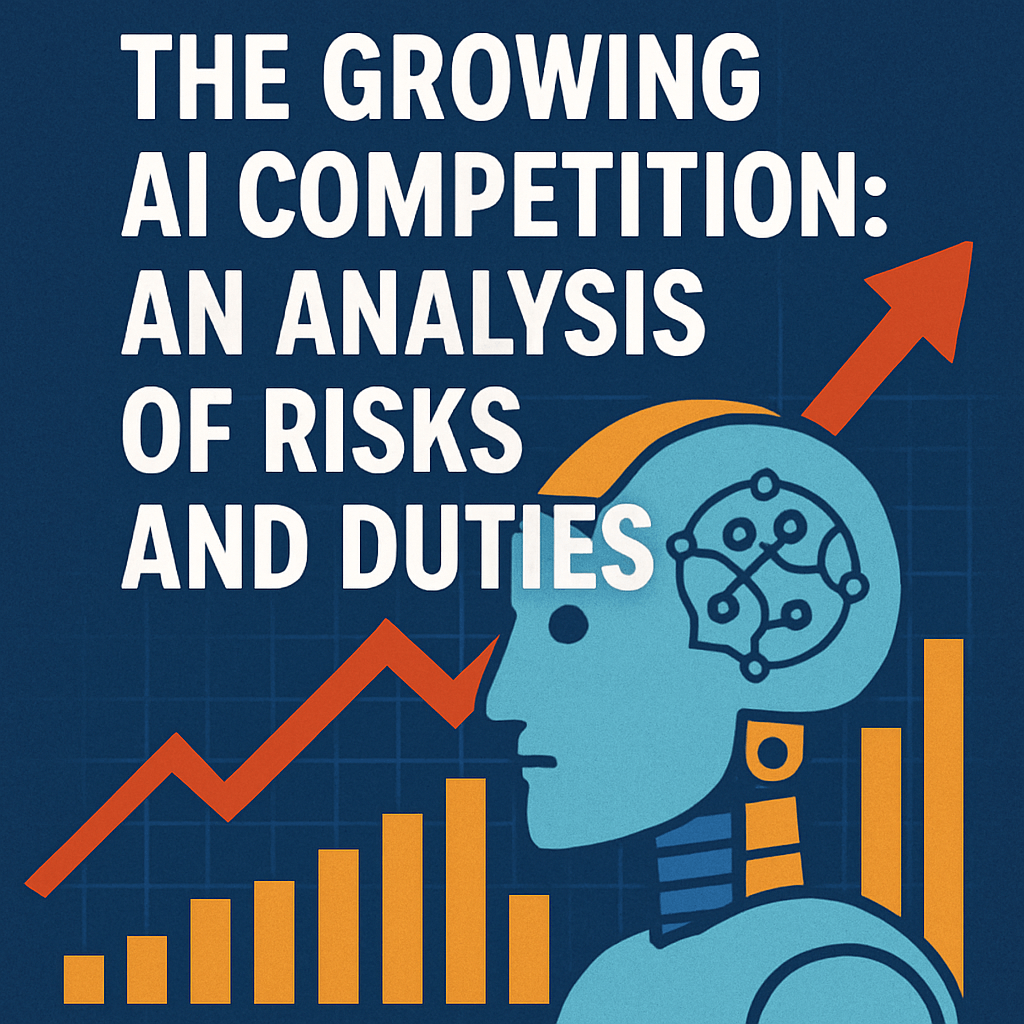The Growing AI Competition: An Analysis of Risks and Duties


The AI arms race is evolving at a pace that outstrips established frameworks for safety and governance, raising significant concerns among policymakers, technologists, and ethicists. Major technology companies are feverishly competing to develop advanced AI systems, often neglecting ethical considerations and regulatory compliance. Meanwhile, governments around the globe struggle to keep up with the rapid advancements in this technology.
Understanding the AI Arms Race
At its core, the AI arms race encompasses the competition among countries and corporations to develop powerful AI technologies, particularly those with military applications. This includes autonomous weapons systems, which can select and engage targets without human intervention, thus creating an unprecedented level of risk in military engagements.
The Acceleration of AI Technologies
According to a report by McKinsey & Company, investments in AI research and development have soared to over $100 billion annually as of 2023. Companies such as OpenAI, Google DeepMind, and Microsoft are pushing the boundaries of what autonymous AI systems are capable of. This rapid development cycle not only raises issues of accountability but also acts as a breeding ground for the dehumanization of warfare.
The Risks of Autonomous Weapons
The unchecked proliferation of autonomous weapons poses specific threats, including:
- Loss of Human Oversight: Key decisions in life-and-death scenarios are increasingly being handed over to algorithms that may not fully understand the complexities of human behavior and moral considerations.
- Escalation of Conflicts: The deployment of AI-driven military assets can lead to faster, unintended escalations in conflicts, as reflexive responses by machines can misinterpret situations.
- Arms Race Dynamics: Nations may feel pressured to develop or deploy such technologies to avoid falling behind, thereby increasing the likelihood of conflict rather than deterring it.
- Dehumanization of Warfare: As warfare becomes more reliant on technology, the human element of conflict and the associated ethical considerations may be diminished.
The Call for Responsible Leadership
Experts have consistently emphasized the need for a unified international approach to regulate AI technologies. Initiatives such as the United Nations’ Office for Disarmament Affairs have started discussions around the regulation of lethal autonomous weapons systems (LAWS). However, the lack of binding international agreements complicates these discussions.
Elon Musk, CEO of SpaceX and Tesla, has expressed grave concerns about the unchecked development of AI, proclaiming that “AI is a fundamental risk to the existence of human civilization.”
The Role of Ethical AI Development
With the proliferation of AI technologies in military and civilian applications alike, ethical AI development is critical. Policies that promote transparency, accountability, and human oversight in AI systems are needed to manage risks effectively. This can include:
- Establishing International Standards: Global standards for AI development and deployment could help mitigate risks and ensure shared commitment to ethical practices.
- Fostering Public-Private Partnerships: Collaboration between governments and tech firms can bridge knowledge gaps and create effective frameworks for responsible AI use.
- Implementing AI Governance Frameworks: Regulatory frameworks that prioritize safety and responsible use can help navigate the ethical implications of AI technologies.
Concluding Thoughts
The potential consequences of the ongoing AI arms race cannot be overstated. As technological advancements accelerate, the risks associated with dehumanization in warfare and the unchecked proliferation of autonomous weapons must be addressed rigorously. Without responsible leadership and comprehensive regulations, humanity could face dire challenges poised by the very technologies meant to advance our society.